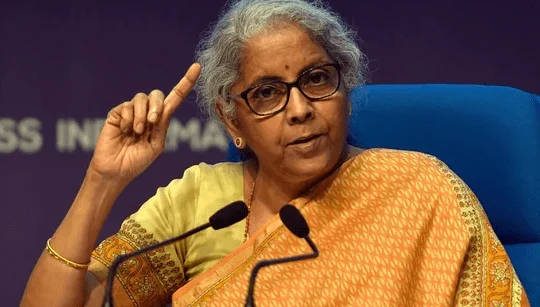Indian Finance Minister Nirmala Sitharaman has maintained her strong stance on crypto, saying it has a potential for money laundering and financing terrorist groups and urged for a global approach to crypto regulation.

During the International Monetary Fund’s (IMF) “Money at a Crossroad” panel discussion, Sitharaman expressed concern about the unregulated crypto market, the use of cryptocurrencies in money laundering, and the financing of terrorist organizations.
Cross-border transfers made with unhosted crypto wallets, she said, are risky and necessitate a globally controlled method. Central bank digital currencies, on the other hand, will significantly increase cross-border payments. She stated, “
“I think regulation using technology is the only answer. Regulation using technology will have to be so adept, that it has to be not behind the curve, but be sure that it is on the top of it. And that’s not possible. If any one country thinks that it can handle it. It has to be across the board.”
In addition, India’s Finance Minister emphasized the country’s growing digital adoption rate. In reality, one out of every four fintech startups becomes a unicorn, with fintech accounting for 20 unicorns in the last 2-3 years.
Kristalina Georgieva, managing director of the IMF, Roberto Campos Neto, president of the Central Bank of Brazil, and Ravi Menon, managing director of the Monetary Authority of Singapore, were among the panelists.
Sitharaman also emphasized the advantages of central bank digital currencies versus cryptocurrency. Her remarks come only weeks after India imposed a high 30% tax on digital assets, with the goal of discouraging investors from trading cryptocurrency.
UPI crypto payment method
In early April, after numerous crypto exchanges began using UPI as a payment method, India’s payments authority stated that it was unaware of the clearance.
As a result, numerous Indian crypto exchanges, including Coinbase, CoinDCX, and WazirX, have ceased accepting UPI-based crypto payments.
